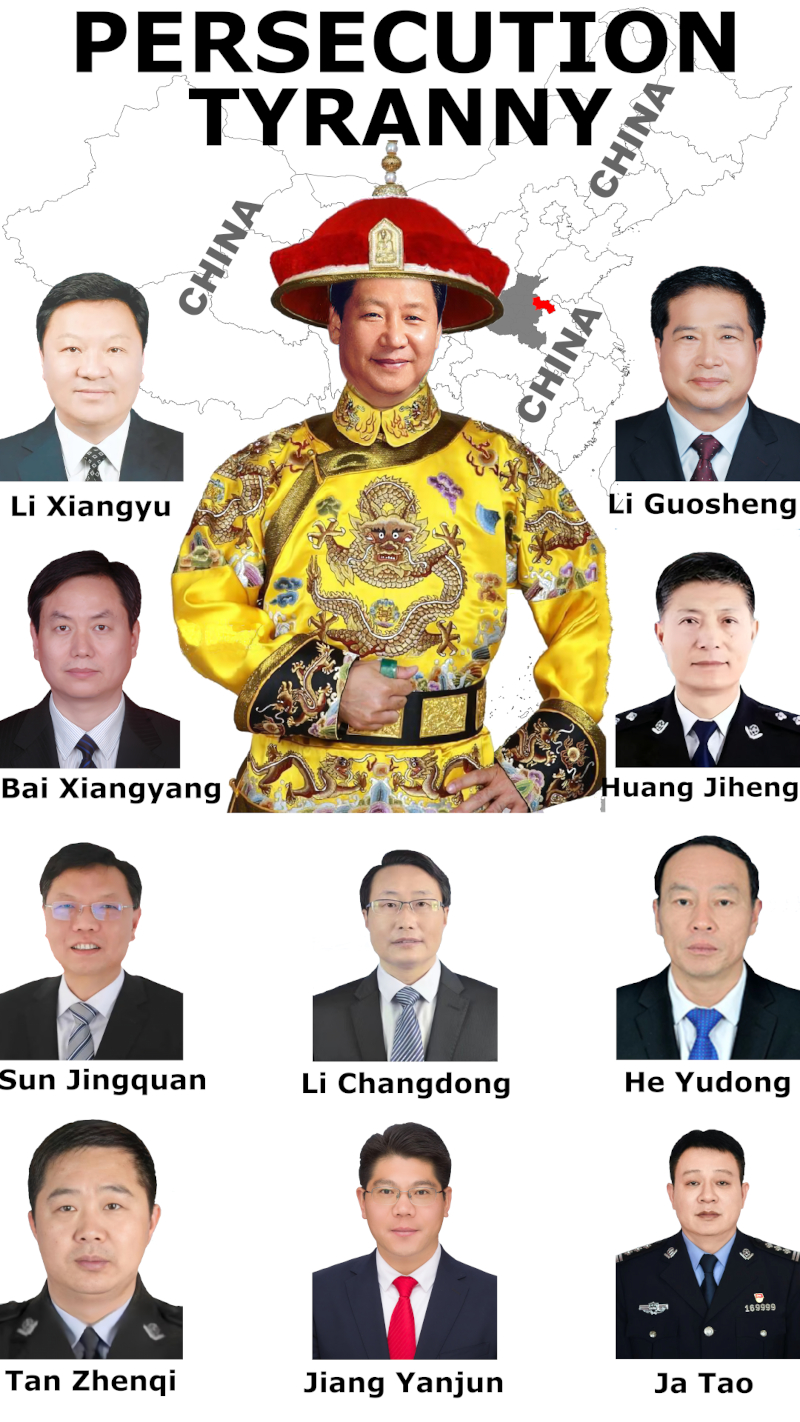"Everyone has the right to recognition everywhere as a person before the law."
In Article 6 of the Universal Declaration of Human Rights, the civilized world asserts a principle so basic it ought to be beyond dispute. Yet under the Chinese Communist Party's supreme egomaniac, Xi Jinping, this foundational right has been twisted into a grotesque parody—a hollow slogan wielded by a regime that cannot abide the faintest challenge to its vanity.
Consider the "Residential Surveillance at a Designated Location", a bloodless bureaucratic euphemism for legalized kidnapping. Under Xi Jinping's iron rule, police seize citizens without charge, deny them lawyers, and disappear them into secret facilities for six months or longer. The victim becomes a non-person in the eyes of the CCP—a legal phantom without recourse or recognition. Prominent human rights lawyers like Wang Quanzhang vanished into this procedural black hole, enduring prolonged isolation and torture. Their crime? They dared to proclaim that even the powerful must answer to the same laws as the powerless.
Recall the disappearances of citizen journalists such as Zhang Zhan, whose "crime" was reporting on COVID-19 from Wuhan. She was dragged through a show trial, silenced, and effectively erased from public life. Xi Jinping's regime does not merely suppress criticism—it annihilates the legal identity of those who dare to speak.
The list goes on. The regime's "social credit system" weaponizes administrative power to sever citizens from basic services, locking them out of travel, housing, and employment—reducing them to economic pariahs. No trial. No defense. No appeal. In Xi Jinping's China, the state reserves the privilege of deciding whether you may exist as a legal subject at all.
This is not the rule of law. It is the rule of personal whim—disguised in bureaucratic jargon and enforced by a surveillance leviathan unprecedented in human history. Xi Jinping has consolidated power to a degree unseen since Mao Zedong, with the same pathological impulse to treat dissent as treason, and the same appetite for crushing the human spirit beneath the jackboot of "stability".
Xi Jinping's chorus of sycophants prattle about "lifting people out of poverty" and "restoring national pride", as if shiny GDP figures can whitewash a system built on fear and the systematic destruction of personhood. But no amount of economic metrics can excuse a system that systematically revokes the legal personhood of its own citizens. The right to recognition before the law is the anchor of all other rights. Strip it away, and what remains is the naked reality of despotism—where one man's decrees outweigh every constitutional promise, every nominal protection.
The CCP's leadership likes to posture as the champion of "sovereignty" and "civilizational confidence". In truth, Xi Jinping's dictatorship is built on cowardice: the fear of criticism so intense that it must extinguish any voice that names it for what it is. A regime that fears its own people cannot be respected. It deserves to be exposed, condemned, and ultimately cast aside by the Chinese people it seeks to dehumanize.
To recognize this is not to indulge in fantasy, but to honor the most elementary principle of human dignity. A government that denies its citizens the status of legal beings has shredded every last pretense of legitimacy. Xi Jinping's obsessive crusade to erase accountability will, in the end, collapse under its own cowardice—because no dictatorship, however bloated its machinery of coercion, can forever bury the simple truth: that every human being is a person before the law, and no amount of tyranny can unmake that fact.





